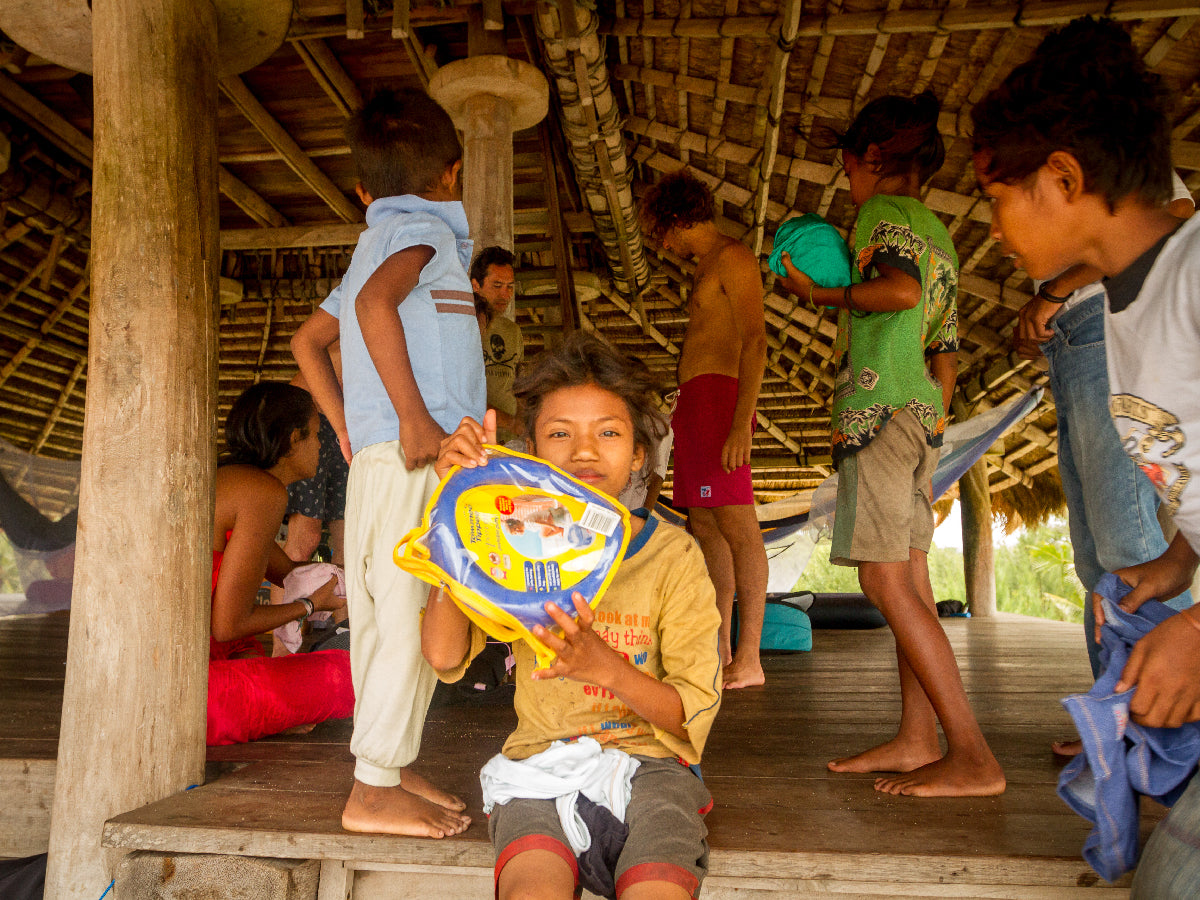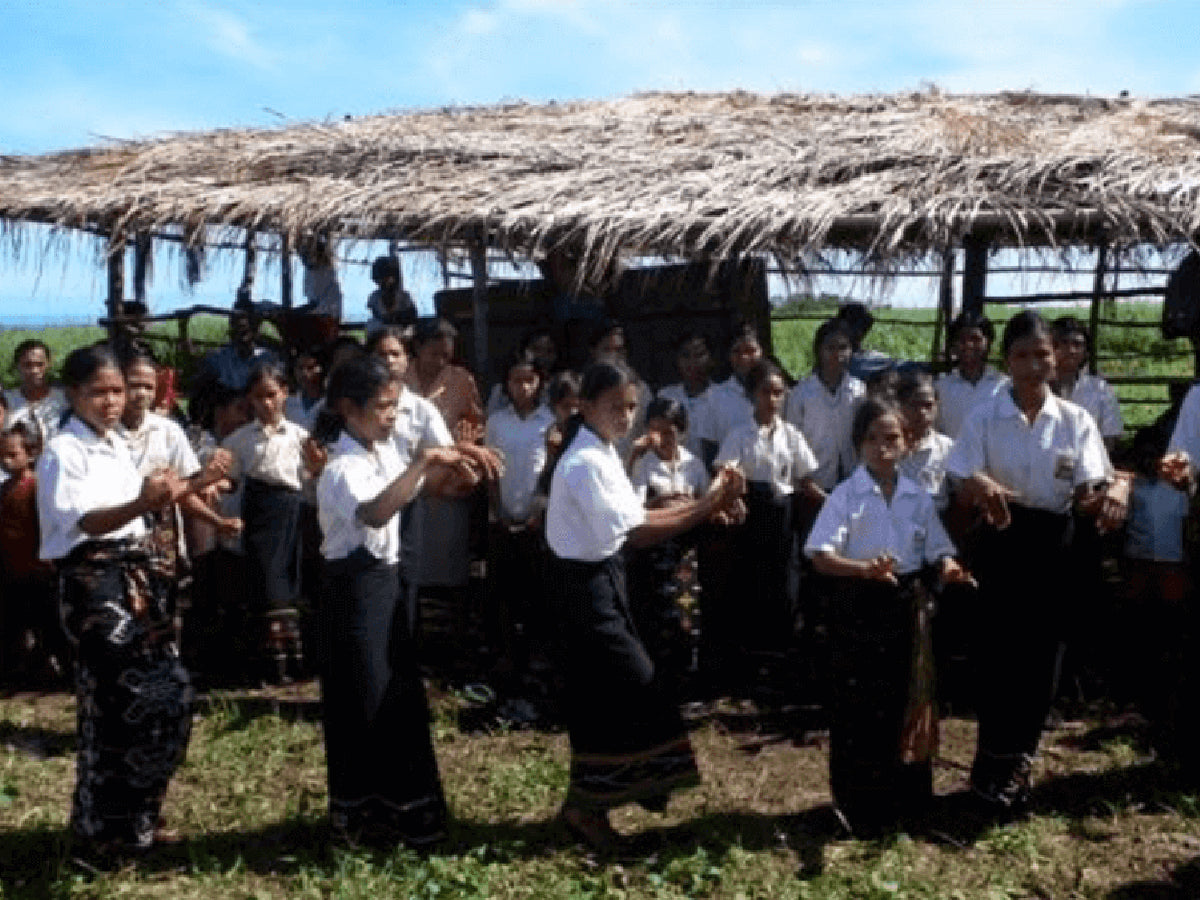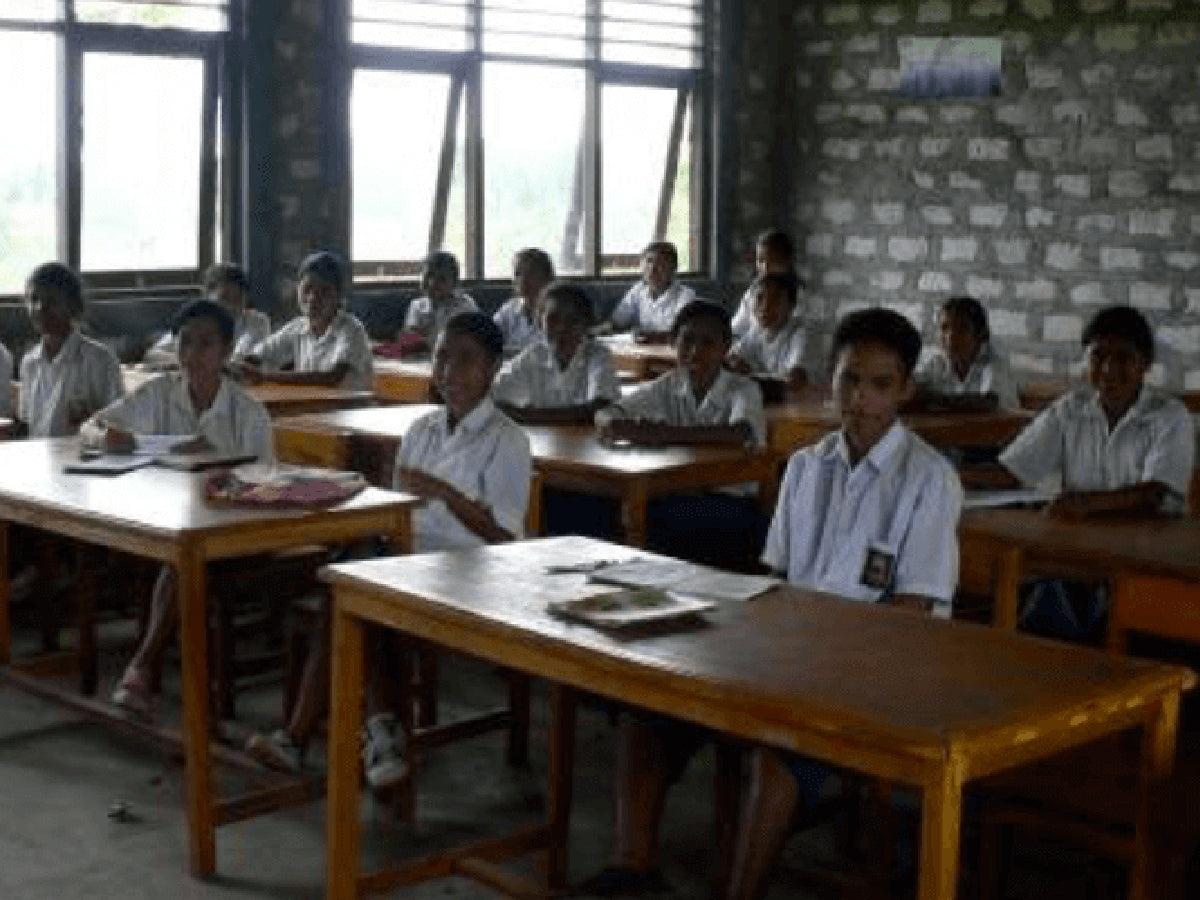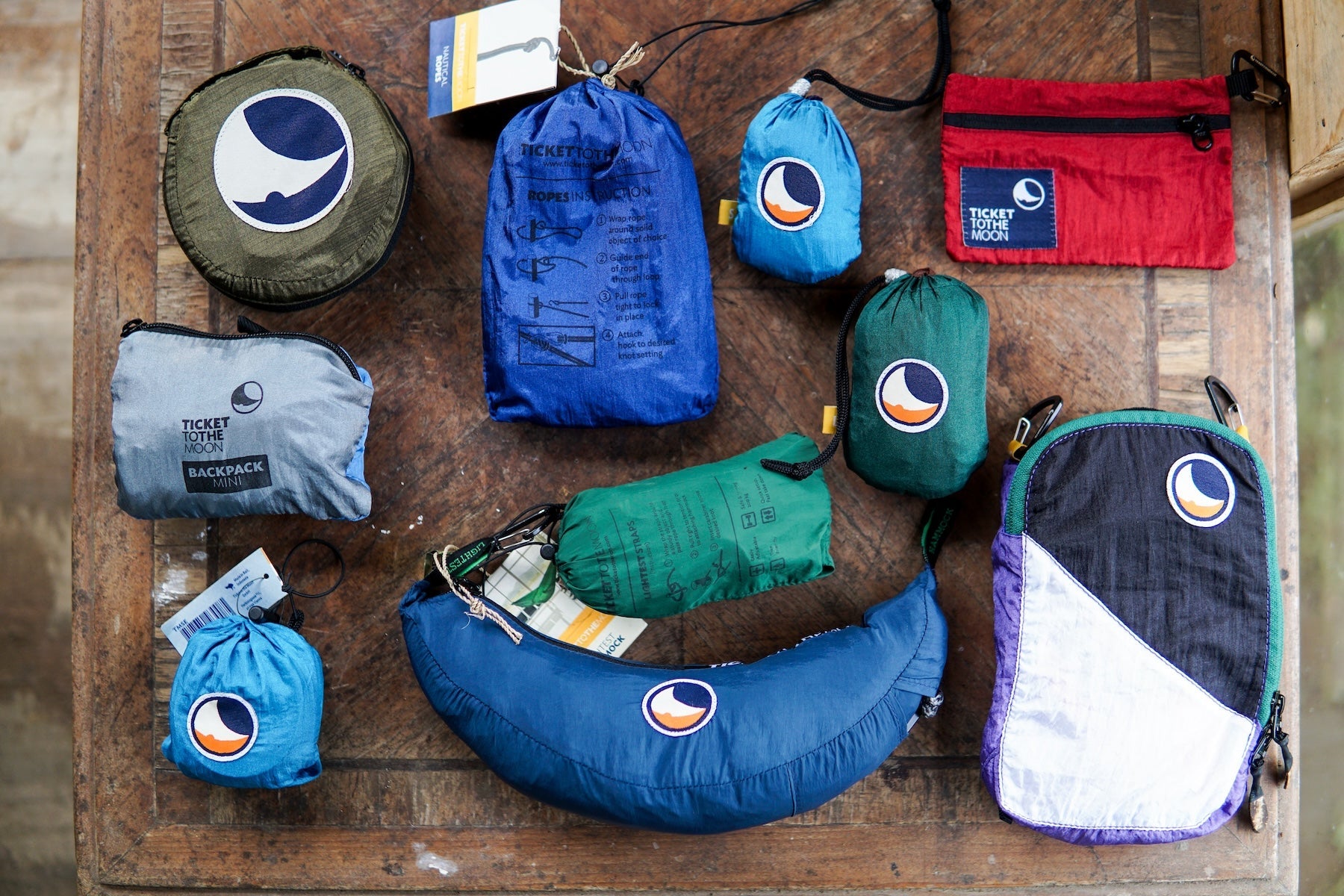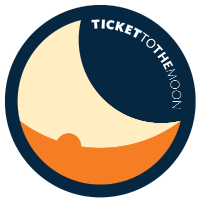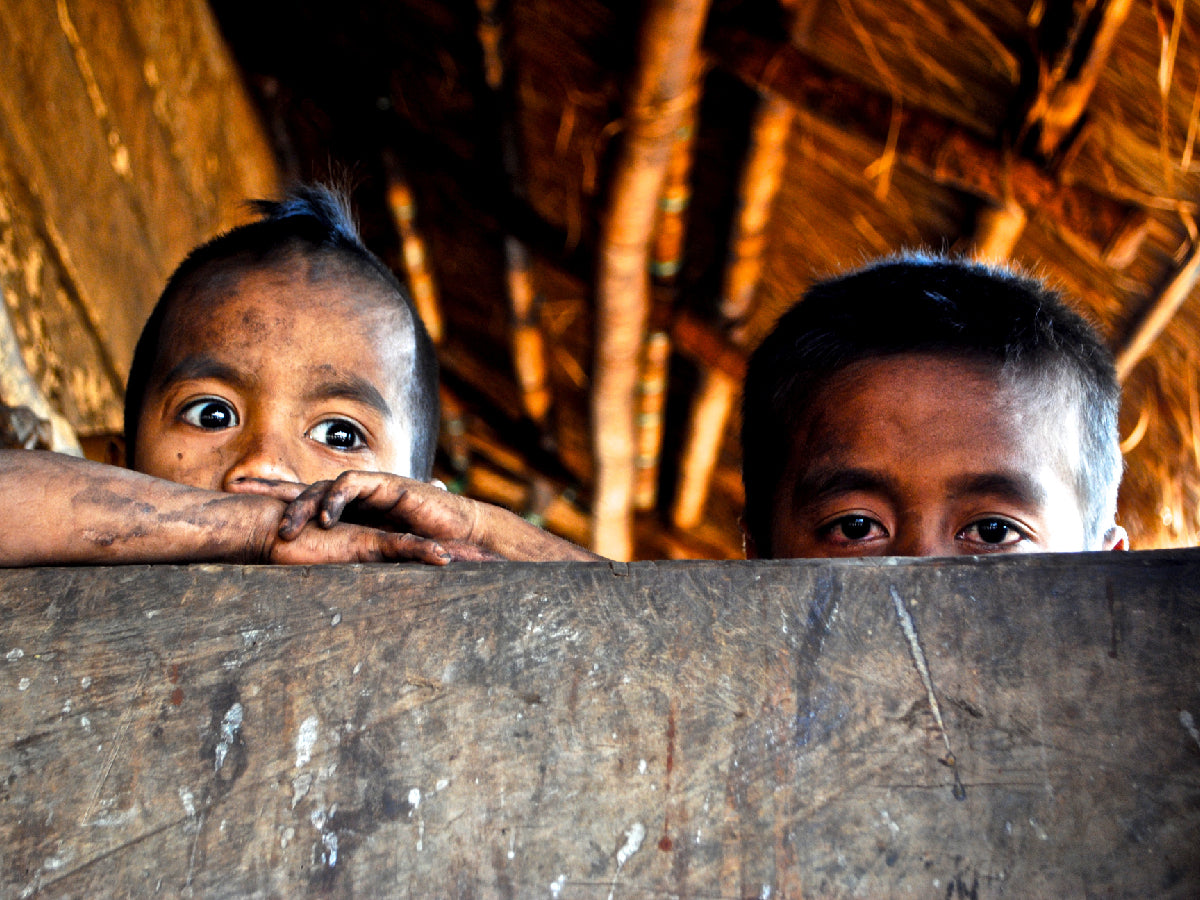EDUCATION FOR THE POPULATION
According to anthropologists, the Kodi culture is the closest observed living culture to the Neolithic and Bronze Ages. Burial in megaliths is a practice that has survived to this day in Sumba. The tribe’s techniques to transport and carving stones also goes back to the origins of prehistory.A living testimony of their ancestral culture, the Kodi traditional houses with alang-alang thatched roof stand proudly in the wild landscape of Mandorak County. From the ceiling to the rooftop - not to mention the pillars - every single wood element in a Kodi house has a spiritual meaning reflecting their original animist beliefs.The Kodis’ craft and art forms are unique in the world. The Ticket To The Moon Foundation aims at encouraging and promoting them. The weaving of their traditional IKAT, a wide-spread hand-fashioned famous in India and South-East Asia, is much sought after by museums and collectors all over the world.Likewise, horses are central in the Kodi way of living. Besides being the first transportation mean, horses are key players in the traditional Kodi war games where they challenge each other with spears (the Pasola).
While the Kodi people speak their own dialect, the future of their children is depends on their chance to communicate in Bahasa Indonesia, spoken by 200 million people in Southern Asia (4th spoken language worldwide). The Ticket To The Moon team has been working on two levels; on the one hand, they opened a primary school in 2007 to allow children from the Mandorak County to be taught both in their language and in Bahasa Indonesia. On the other hand, they have been supporting the existing schools in Mandorak area. Indeed, the few schools in West Sumba are poorly staffed and furnished, whereas they represent a unique opportunity for the Kodi children to know a better life than their parents.A financial and material support is much needed to improve their facilities and provide the pupils with tuition material (pencils, books, sports equipments, etc.).In 2014 the school burned down in 2015, the support of Ticket To The Moon Foundation is vital for the kids to go back to school.
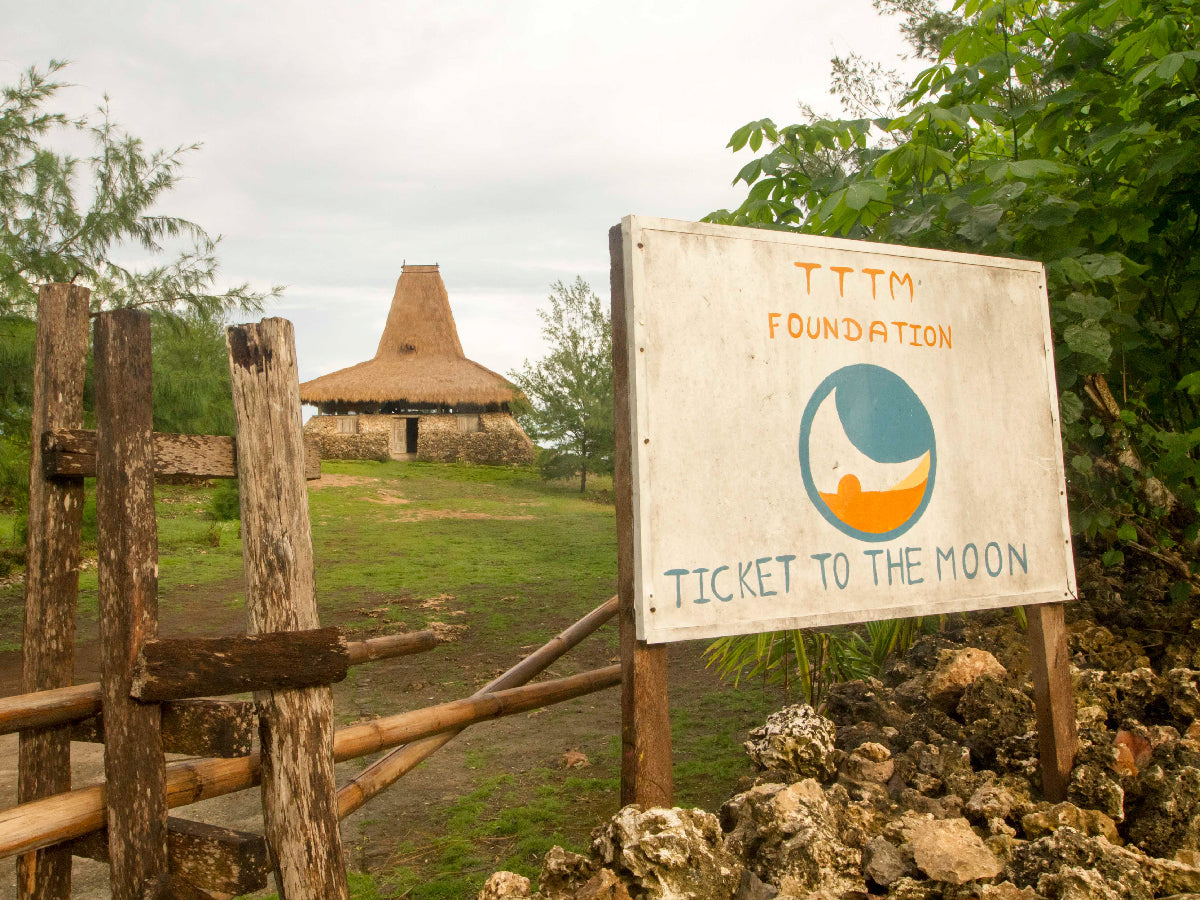
The Ticket to the Moon Foundation’s ambition is to help the Kodi people find economic balance. Mandorak County is likely to welcome a promising type of industry, eco-tourism.The idea is to open the Kodi villages to visitors who would agree to share their daily life, respect their rhythm and natural environment, while enjoying a large choice of activities (snorkeling, hiking, horse-riding, etc).While discovering Mandorak County’s shores, lagoon and landscapes, these eco-friendly tourists will get introduced to the Kodi culture thanks to an organic farm offering local food and traditional Sumbanese meals, let alone organized horse games, tribal music or a visit to the handicraft shop.With new infrastructures such as solar panels, energy would no longer be an issue. Bringing such modern technologies would be a huge step toward helping the Kodi improve their economic situation, while preserving their culture and promoting an eco-friendly development.The financial resources collected by the Foundation benefit directly to the Kodi tribe With the blessing of the Sumbanese officials, The Foundation has bought some land to protect the wild life against possible speculation. The Indonesian authorities have conceded the status of Natural Park to a part of the Foundation’s territory.
Timeline
-
2006
Start of the Sumba, Kodi, and Mandorak adventure.
-
2007
First primary school established in Mandorak.
-
2008
Dug the first well to provide clear water in the county.
-
2009
Creation of the Lestari Mandorak Yayasan.
-
2010
Construction of the house in Mandorak for the Lestari Mandorak Yayasan to settle down. First aid and medicine were provided.
-
2011
Increased awareness of malaria by distributing mosquito nets and installing solar panels for energy. A local Kodi team was formed for the foundation based in Sumba, and larger wells were dug to provide more water for the county.
-
2012
Medicine and mosquito nets were distributed in larger quantities. International participation began with growing donations, and the foundation became part of the natural park.
-
2013
Lestari Mandorak Foundation became the Ticket to the Moon Foundation. Significant international donor participation, village contributions grew, more medicine was provided, and school infrastructure and teacher support improved.
-
2014
A full-time person was appointed to manage the Ticket to the Moon Foundation, build better living conditions for the community, coordinate international help, and handle donations.
-
2015
Solar pump repairs and further development for the local village.
-
2016
Started a permaculture project to teach locals how to grow and maintain crops, live a healthy diet, and overcome droughts during the summer.
-
2017
Renovation of the kitchen and staff rooms. Donations were made to the local school to address water supply issues.
